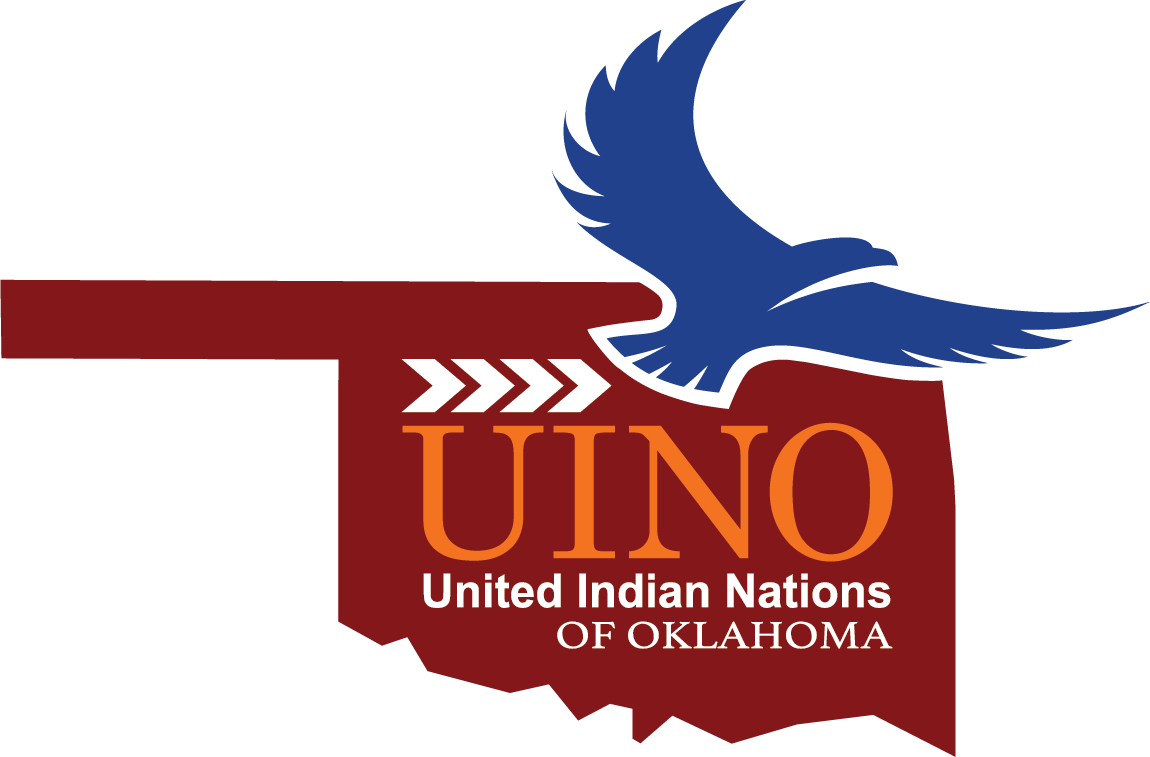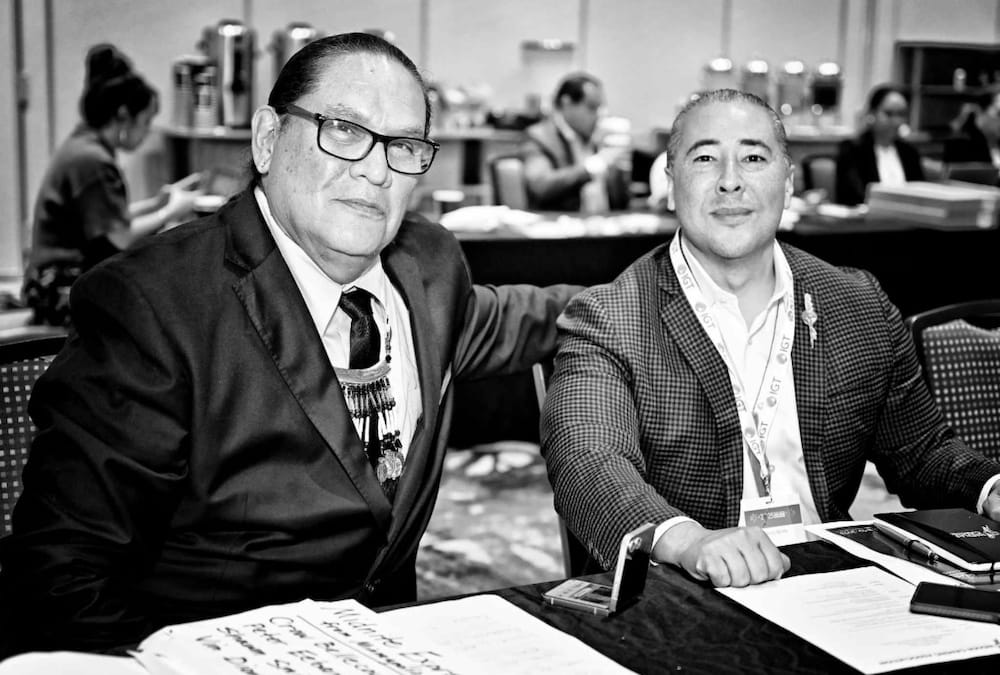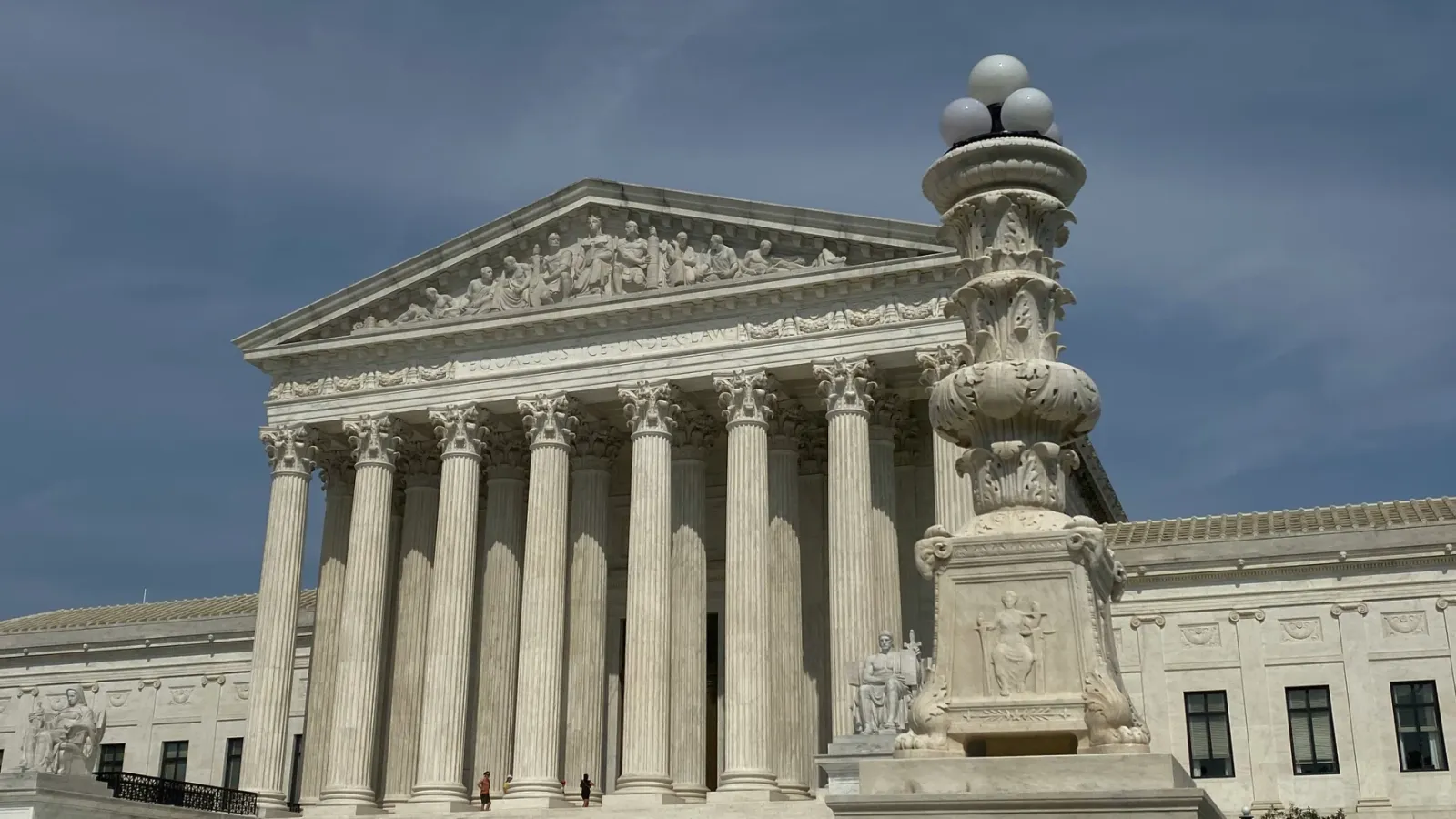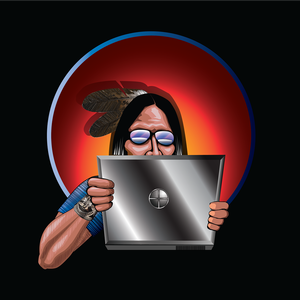

5 largest tribes in Oklahoma are asking SCOTUS to take up tax case involving Muscogee citizen

The U.S. Supreme Court is considering whether to take up an Oklahoma tax case involving Muscogee Nation citizen Alicia Stroble. Now the five largest tribes in the state are weighing in, hoping SCOTUS will overturn the Oklahoma Supreme Court’s decision that ruled Stroble is not exempt from paying state income tax.
By Sarah Liese (Twilla), KOSU
Stroble asked the U.S. Supreme Court to hear her case in September. It rests on the argument that she was exempt from paying state income taxes from 2017-19 because she is an enrolled tribal member, worked for the Muscogee National Council and lived inside the tribe’s reservation boundaries in Okmulgee.
But, the Oklahoma Tax Commission argued Stroble did not live on land considered Indian Country because her fee title for her residence originated from a non-tribal entity and was not held in trust or federally owned as restricted reservation land.
Over the summer, the Oklahoma Supreme Court sided with the state tax commission in a 6-3 opinion.
In the majority opinion, justices wrote the land where she resided was not considered Indian Country and that the landmark McGirt decision did not extend to civil cases. Gov. Kevin Stitt, a critic of tribal sovereignty and the McGirt ruling, appointed four of the concurring justices.
Now, the five largest tribes in Oklahoma — the Muscogee, Chickasaw, Choctaw, Cherokee and Seminole Nations — are standing behind Stroble because they, too, have an interest in the outcome.
“The petition for a writ of certiorari should be granted because the decision below threatens core principles of federal law relied on by Indian tribes nationwide, unsettles the Nations’ sovereignty, and puts their productive relationship with the State at risk,” the amicus curiae brief of the Cherokee, Chickasaw and Choctaw nations said.
The Seminole Nation and Muscogee Nation filed separate amicus briefs, as did the National Congress of American Indians.
Four U.S. Supreme Court justices must vote in favor to take up the case. More than 40 cases have been granted to be heard during the 2025-2026 term, but an exact timeline for Stroble’s is unclear.

UINO Chairperson Ben Barnes urges the U.S. Senate to reject Lumbee federal recognition and protect Tribal sovereignty

WASHINGTON, D.C. — United Indian Nations of Oklahoma (UINO) Chairperson and Shawnee Chief Ben Barnes will testify today before the Senate Committee on Indian Affairs and call on Congress to reject the “Lumbee Fairness Act” and preserve the integrity of the federal acknowledgment process that safeguards legitimate Tribal sovereignty.
The public may live-stream today's hearing at this link.
Chief Barnes’ passionate testimony recounts the genocide, forced removals, broken treaties, and boarding school atrocities that Tribal Nations endured to exist today. He will remind Senators that the Lumbee and other self-proclaimed groups have no such shared history or experience.
“Sovereignty is the inheritance of Tribal survival. The Shawnee Tribe and other sovereign Tribal Nations from across Oklahoma and the United States continue to exist today despite federal policies and actions intended to end our existence as both humans and as separate sovereigns,” Chief Barnes said. “Sovereignty is not and cannot be created by Congress as a reward for simply claiming to be a tribe.”
Chief Barnes emphasized that the “Lumbee Fairness Act” would grant recognition to a group that has repeatedly changed its claimed identity over time, without verifiable descent from any historic Tribal Nation.
“Out of concern for the integrity of Tribal recognition and sovereignty, the United Indian Nations of Oklahoma turned to a respected historian and genealogist to examine the record,” Chief Barnes said. “That research did not attempt to define who the Lumbee are. It simply asked a single question: Can the Lumbees’ Tribal claims be verified by historical and genealogical evidence? The answer was a resounding no.”
The UINO-commissioned analysis, conducted by a professional historian and genealogist, found:
- No demonstrated descent from a historic Tribal Nation
- No continuous Tribal government before the mid-20th century
- No ancestral Indigenous language
- Census records showing ancestors identified as free persons under British and American
law, never as a Tribal polity
Chief Barnes drew a sharp distinction between sovereign Tribal Nations whose existence has endured through centuries of removal and assimilation policies, and groups that attempt to self-declare Tribal status and appropriate Native history and trauma to bolster false claims of Indigeneity.
“Our children’s trauma is not a credential. Our unmarked graves are not a strategy. Our ancestors’ suffering is not a political accessory.” Chief Barnes said. “If identity becomes self-proclamation instead of documented history, Tribal sovereignty becomes a sandcastle waiting for the tide.”
Barnes urges Congress to uphold the established Department of the Interior Office of Federal Acknowledgment (OFA) process, which has been open to the Lumbee since 2016, and not bypass the OFA for political expediency.
“If Congress replaces documented history with politics and abandons the difficult merits questions at issue here, then this body will not be recognizing tribes; it will be manufacturing them,” Chief Barnes said. “And once that begins, sovereignty will be defined not by history, but by votes.”
Indian Gaming Association Vice Chairman David Bean steps into interim leadership

by Tribal Business News
The Indian Gaming Association announced that Vice Chairman David Z. Bean has assumed the role of chairman following the sudden passing of longtime leader Ernie Stevens Jr. on Sept. 26.
Bean will serve the remainder of Stevens’ term under the organization’s bylaws, which direct the vice chairman to fill any vacancy in the Chairperson’s office, per a statement from the organization.
Stevens led the Indian Gaming Association for more than two decades. As previously reported by Tribal Business News, tribal gaming revenues grew to $43.9 billion in fiscal year 2024 during his tenure, marking the fourth consecutive year of growth.
“Ernie always reminded us that ‘there is more work to do, let’s get up tomorrow and get at it,’” Bean said in a statement. “As the new chairman of IGA, I intend to continue on the path that Ernie laid down for over 20 years, carrying forward his dedication to protecting tribal sovereignty and advancing the interests of all tribal nations.”
Bean, a longtime leader from the Puyallup Tribe of Indians, has held multiple roles within the association, beginning as a Northwest regional representative before serving as Vice Chairman. He now steps into the chairmanship as the organization continues to confront issues such as illegal online gaming operations, federal program funding and the need for stronger consultation across federal agencies.
Jason Giles, executive director of the Indian Gaming Association, said the transition reflects the organization’s continued strength.
“Chairman Bean embodies the same values of unity, humility and persistence that defined Chairman Stevens’ leadership,” Giles said in a statement. “Under his guidance, IGA will continue to build on Ernie’s legacy, protecting tribal sovereignty, promoting responsible gaming policy and ensuring that tribal governments remain strong partners in the national dialogue on economic development.”
Bean said he planned to continue pursuing Stevens’ priorities as interim chairman, including ongoing opposition to futures contracts the organization has described as “effectively sports betting.”
At issue is a potential regulation by the Commodity Futures Trading Commission that would allow people to buy and sell shares based on the outcome of sporting events, similar to how investors trade stocks. A 2024 federal court decision allowing election‑based contracts has fueled concerns that sports contracts could follow, prompting strong opposition from tribes and the IGA, according to a report from law firm Foley and Lardner LLP.
Bean also identified priorities such as protecting Indian health care funding and coordinating through the Coalition for Tribal Sovereignty with the National Congress of American Indians, the United South and Eastern Tribes and other organizations.
The association will hold elections for vice chairman and treasurer at its annual tradeshow and convention in March 2026.

Judge Gregory H. Bigler to be inducted into 2026 Circle of Honor at Tulsa City-County Library

TULSA, Okla. — Tulsa City-County Library’s American Indian Resource Center will induct Judge Gregory H. Bigler into the American Indian Circle of Honor during a special presentation at 10:30 a.m. on Saturday, March 7, 2026, at Hardesty Regional Library, 8316 E. 93rd St.
Bigler, Euchee, enrolled with the Muscogee Nation of Oklahoma, is a tribal judge and lawyer who exclusively represents Native American tribes. He currently serves as the chief district judge at the Sac and Fox Nation, district judge at the Seminole Nation of Oklahoma, chief judge for the Court of Appeals for the Kickapoo Tribe in Kansas, appellate judge at the Mashantucket Pequot Nation, Quapaw Nation Supreme Court justice, and Supreme Court judge for the Iowa Tribe of Oklahoma.
He previously served as district court judge for the Muscogee Nation during the historic McGirt v. Oklahoma decision, attorney general for the Kickapoo Tribe of Oklahoma, the first district court judge for the Prairie Band Potawatomi and attorney general of the Sac and Fox Nation.
More recently, Bigler has worked on implementing the United Nations Declaration on the Rights of Indigenous Peoples and facilitated the translation of the declaration into the Muscogee language. He has also worked with several tribes to implement the special criminal jurisdiction allowed under the Violence Against Women Act.
An active member of the Polecat Euchee Ceremonial Grounds, Bigler has been deeply involved in Euchee language revitalization. In the 1990s, he founded the Oklahoma Native Language Association and organized its annual Native Language Use Conference. His efforts to start Euchee language classes has inspired immersion programs that continue to create new speakers today.
Bigler is an accomplished author and scholar. His works include “Rabbit Decolonizes the Forest: Stories from the Euchee Reservation” and the law review articles “Foundations of Tribal Society: Art, Dreams, and the Last Old Woman” and “Traditional Jurisprudence and Protection of Our Society: A Jurisgenerative Tail.”
Given in even-numbered years, the Circle of Honor recognizes an American Indian leader whose achievements and contributions enrich the lives of others and preserve American Indian culture and legacy.
Recipients receive a $15,000 cash prize sponsored by the Maxine & Jack Zarrow Family Foundation. Previous Circle of Honor inductees include:
John Herrington (2024)
Archie Mason (2022)
Walter Echo-Hawk (2020)
Dr. Henrietta Mann (2018)
Sam Proctor (2016)
Ruthe Blalock Jones (2014)
Kirke Kickingbird (2012)
Billy Mills (2010)
Neal McCaleb (2008)
Wilma Mankiller (2006)
Charles Chibitty (2004).
Learn more about the Circle of Honor and this year’s recipient at www.tulsalibrary.org/american-indian-circle-honor or call the AskUs line at 918-549-7323.








